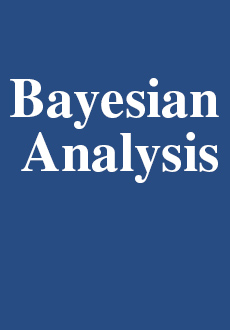Abstract
In some scenarios, the observational data needed for causal inferences are spread over two data files. In particular, we consider scenarios where one file includes covariates and the treatment measured on a set of individuals, and a second file includes responses measured on another, partially overlapping set of individuals. In the absence of error-free direct identifiers like social security numbers, straightforward merging of separate files is not feasible, so that records must be linked using error-prone variables such as names, birth dates, and demographic characteristics. Typical practice in such situations generally follows a two-stage procedure: first link the two files using a probabilistic linkage technique, then make causal inferences with the linked dataset. This does not propagate uncertainty due to imperfect linkages to the causal inference, nor does it leverage relationships among the study variables to improve the quality of the linkages. We propose a joint model for simultaneous Bayesian inference on probabilistic linkage and causal effects that addresses these deficiencies. Using simulation studies and theoretical arguments, we show that the joint model can improve the accuracy of estimated treatment effects, as well as the record linkages, compared to the two-stage modeling option. We illustrate the joint model using a constructed causal study of the effects of debit card possession on household spending.
Citation
Sharmistha Guha. Jerome P. Reiter. Andrea Mercatanti. "Bayesian Causal Inference with Bipartite Record Linkage." Bayesian Anal. 17 (4) 1275 - 1299, December 2022. https://doi.org/10.1214/21-BA1297
Information





